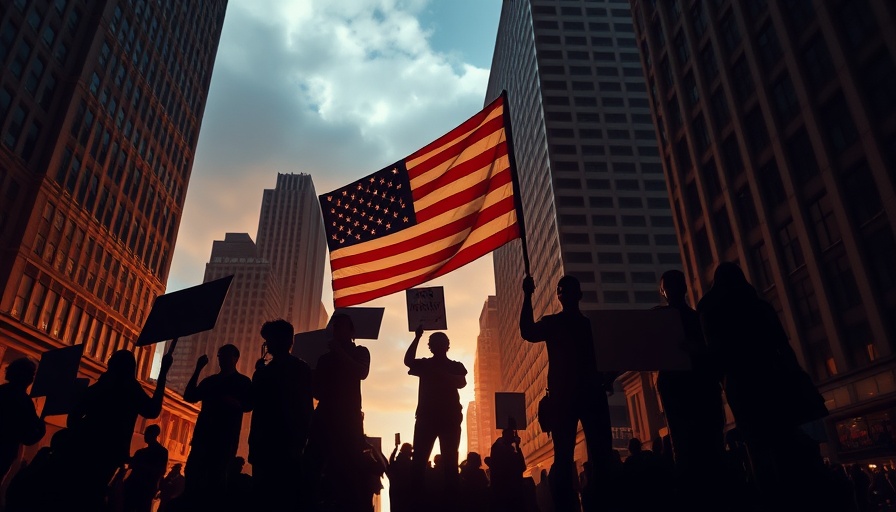
Unpacking President Trump’s Controversial Executive Order on Flag Burning
On August 25, 2025, President Donald Trump took the controversial step of signing an executive order aimed at curbing the act of flag burning, which has long been protected as a form of political expression under the First Amendment. Despite a landmark Supreme Court ruling from 1989 that affirmed flag burning as legitimate political speech, Trump’s order directs the Justice Department to investigate and potentially prosecute individuals engaging in this act, particularly if it may incite imminent lawless action.
The Historical Context of Flag Burning Legislation
The U.S. Supreme Court ruling in Texas v. Johnson (1989) clearly stated that burning the American flag is a form of protected speech. The ruling emphasizes the necessity of considering context when judging acts of expression. This has spurred debate on whether the current sociopolitical climate changes the acceptability of such expression. Flag burning, while deeply offensive to many, is a form of protest that has been invoked in various movements throughout American history, from civil rights to anti-war protests. What might seem unacceptable to some is often a powerful statement against perceived injustice.
Understanding the Implications of Trump’s Executive Order
Trump’s executive order posits that desecrating the flag is "uniquely offensive and provocative," potentially inciting violence and riotous behavior. This perspective raises questions about the balance between public sentiment and the constitutional rights afforded to citizens. The legal definition of “fighting words” remains a gray area, as the threshold for prosecution depends on subjective interpretations of intent and potential outcomes.
Public Reaction and Ongoing Debates
The public response to flag burning, elongated through social media platforms, reveals a divided America. Proponents of the act argue that it is a crucial element of free speech and political involvement, while opponents view it as a blatant insult to the nation and its symbols. Trump's assertion that burning the flag causes “riot levels we’ve never seen” hints at underlying societal tensions heightened by divisive politics.
Future Predictions: The Direction of Free Speech in America
As the legal landscape surrounding political expression evolves, the implications of Trump's order extend beyond just flag burning. If flag burning is prosecuted more aggressively, could we see a trend toward restricting other forms of protest? Such a move could incite widespread unrest and further discussions on the boundaries of free speech in America. Expert opinions suggest that an uptick in such legal actions could lead to backlash, inspiring new movements or increasing participation in existing protest groups.
Practical Insights: What This Means for Citizens
Americans need to stay informed about their rights concerning free expression. Engaging in open dialogues about the implications of this executive order can help foster a more robust understanding of constitutional rights. Citizens should consider participating in discussions and educational forums about what free expression means in today's context and how to navigate differing opinions respectfully.
Emotional Connections: Understanding the Heart of the Matter
For many, the American flag represents their identity, sacrifice, and values — a symbol of unity and freedom. Therefore, the act of burning it can feel deeply personal and offensive. Recognizing these strong emotional ties is essential as we navigate discussions surrounding flag burning and the implications of Trump’s executive order. Expressing differing opinions without condemnation can promote healing and understanding in an increasingly polarized society.
In summary, President Trump’s executive order on flag burning reignites critical conversations around free speech and political expression. The complexities surrounding this issue merit ongoing dialogue and education. As citizens, understanding these nuances and advocating for our constitutional protections will play a vital role in shaping the future of free expression in the United States.
 Add Row
Add Row 
 Add
Add 


Write A Comment